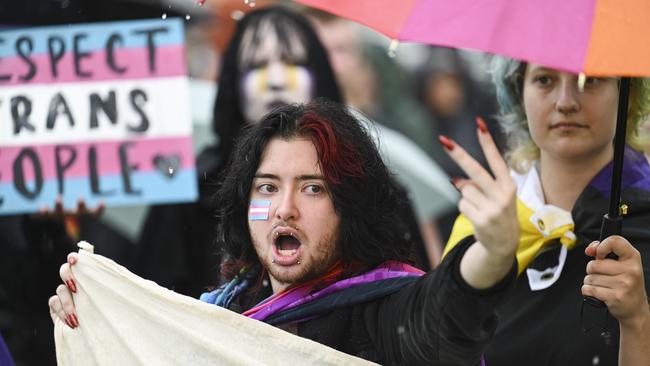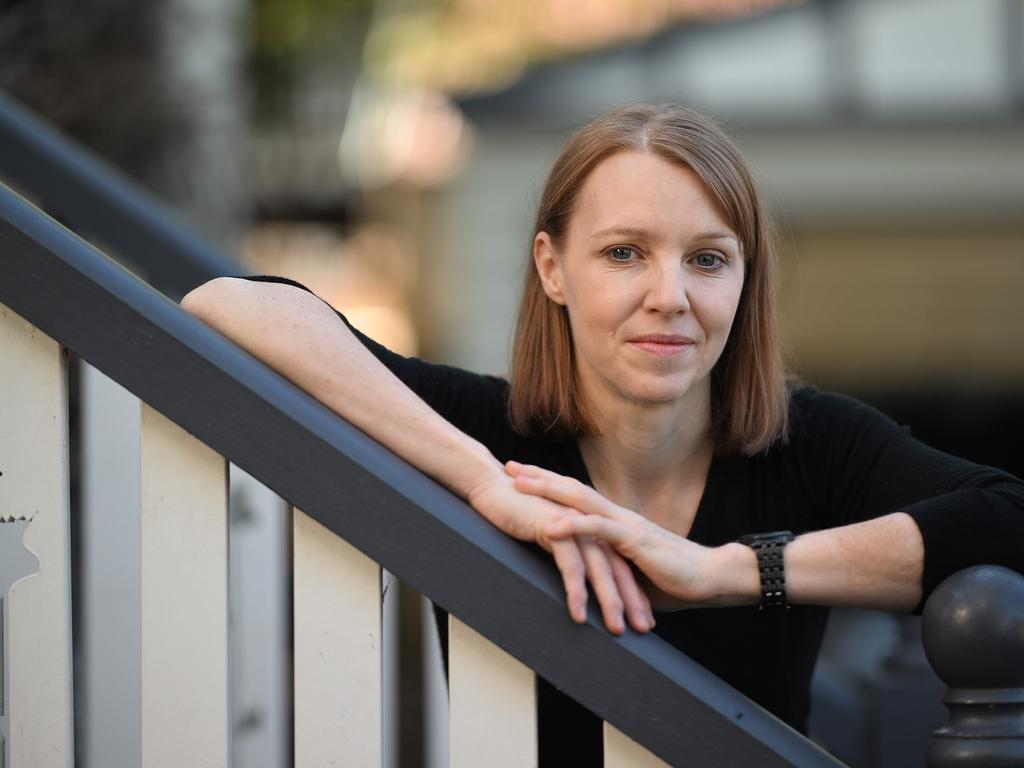Doctors’ plea for answers on transgender treatment in Australia
Psychiatrists want national standards for the treatment of children suffering gender distress, with medicos fearful of expressing professional views on trans medicine.

The specialist youth and adolescent arm of the nation’s peak psychiatry college is pushing for national guidelines on the care of young people with gender distress and gender dysphoria as doctors around the country say they feel muzzled and fearful of expressing professional views on gender medicine.
The Royal Australian and New Zealand College of Psychiatrists’ Faculty of Child and Adolescent Psychiatry bi-national committee held an extraordinary meeting this week to discuss member concerns over the provision of services for young people presenting with gender dysphoria and incongruence.
“During this meeting, some members expressed their hesitancy to discuss gender issues or raise concerns and raised the importance of robust, evidence-based debate,” according to a communique issued after the meeting and sent to psychiatrists. The committee unanimously agreed to support any psychiatrist or trainee to raise concerns during the course of their employment about any aspect of practice.
Some child psychiatrists at the meeting, which was called in the wake of gender-critical Queensland psychiatrist Jillian Spencer being stood down from clinical duties, expressed concerns about the lack of evidence underpinning medicalised affirmative care of young people with gender incongruence, and uncertainty over whether treating such children with puberty blockers and cross-sex hormones reduced mental distress.
This issue is the subject of fierce international debate as paediatric specialists at the front line of gender medicine from six countries challenged the global Endocrine Society’s claims that gender-affirming care improves the wellbeing of transgender and gender-diverse people and reduces the risk of suicide. The international experts, in an extraordinary public letter, said the claim was not supported by the best available evidence.
The RANZCP’s FCAP bi-national committee in its meeting this week said it would be advocating via the college for the federal government to step in.
“Given the complexity and challenges in this area, and the significant community concerns and media interest, the committee felt that a national approach which includes Australian federal, NZ and state governments is critically needed,” it said.
Currently, children’s hospitals around the country follow the AusPath standards of care which gender affirmative physicians regard as world’s best practice, but which are not accepted by all doctors because they represent the position of Royal Children’s Hospital paediatricians who drafted them and declared them to be national standards.
The FCAP committee resolved to advocate via RANZCP for “better access to and consistency of care through the development of a national framework (along with necessary resources) including guiding principles for service provision and outcomes monitoring”, as well as pushing for “the development of a robust evidence base, including co-ordinating and providing funding for research on the interventions and outcomes for the treatment of gender incongruence”.
They also resolved to lobby for resources and fact sheets for young people and their families.
The committee discussed whether there was a need for a systematic review to be held in Australia, but given comprehensive recent reviews in the UK, including the Cass Report, the final report of which is pending, decided there would be little merit in undertaking a local review. The committee had established that the Cass review was set to hand down a final finding that did not find evidence of benefit from the prescription of hormone drugs to children, members were told.
The interim findings of the Cass Review in the UK found children were rushed down a medical pathway without full exploration of their mental health, prompting the closure of the Tavistock Clinic and an NHS decree that puberty blockers can only be prescribed to children in the context of clinical trials.
The Australian FCAP committee felt there was an urgent need to update the RANZCP’s position statement on the treatment of young people with gender distress and gender dysphoria. Psychiatrists were told a steering committee is working on updating the position statement, which was most overhauled most recently in 2021 when it stepped back from full endorsement of the gender-affirmative model and stressed the need for focus on holistic psychotherapy.
Increasingly, discussion of gender-affirmative medicine among Australian doctors reflects developments around the world. Countries including the UK, Sweden, Norway and France have placed greater safeguards around the prescription of hormone drugs.
The Endocrine Society in Australia fully embraces the position of the international Endocrine Society in endorsing the World Professional Association for Transgender Health model of care, but many Australian specialists, especially paediatric endocrinologists, hold concerns.
The split in the profession over the issue is so deep that the peak professional body for paediatric endocrinologists, the Australia and New Zealand Society for Paediatric Endocrinology and Diabetes, has for several years refrained from input into transgender care due to wide concerns.
On Friday in the Wall Street Journal, 21 clinicians and researchers from nine countries published a letter challenging Endocrine Society Stephen Hammes’ recent statement that “more than 2000 studies published since 1975 form a clear picture: gender-affirming care improves the wellbeing of transgender and gender-diverse people and reduces the risk of suicide.”
“This claim is not supported by the best available evidence,” the gender specialists said.
“Every systematic review of evidence … has found the evidence for mental health benefits of hormonal interventions for minors to be of low or very low certainty.”
The 21 clinicians in the WSJ letter said, in view of significant risks, that doctors internationally are recommending psychotherapy rather than hormones and surgeries as the first line of treatment for gender-dysphoric youth.








To join the conversation, please log in. Don't have an account? Register
Join the conversation, you are commenting as Logout